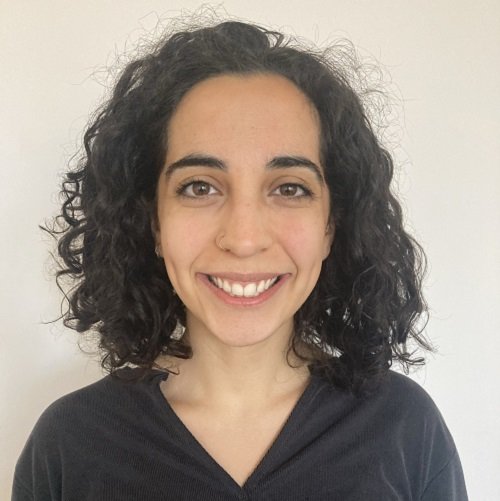MSc Social Policy
ApplyKey facts
- Start date: September
- Study mode and duration: 12 months full-time; 24 months part-time
1st in Scotland for Social Policy (Times/Sunday Times Good University Guide 2023)
Study with us
- offers the opportunity to develop and extend your knowledge and understanding of key social policy issues together with advanced training in research methods
- expand your knowledge of contemporary issues facing social welfare and wellbeing and how social policy responds to them
- develop knowledge and research skills highly valued by public, third and private sector employers
- acquire research training vital for further study at PhD level
The Place of Useful Learning
UK University of the Year
Daily Mail University of the Year Awards 2026
Scottish University of the Year
The Sunday Times' Good University Guide 2026
Why this course?
This course offers you the opportunity to develop and extend your knowledge and understanding of key social policy issues together with advanced training in research methods.
It aims to improve your knowledge and understanding of the factors which shape social needs and the ways in which different societies have responded to these. This will enhance your research skills and enable you to undertake an independent research project on a topic of your choice.
Who's it for?
The course is aimed at:
- students who have studied social policy at undergraduate level and who now wish to build on the foundations they have already laid before entering employment or embarking on further study
- graduates of other disciplines who wish to improve their knowledge and understanding of social and welfare issues whilst also enhancing their research skills
- individuals already in employment who wish to update their existing knowledge and skills before moving onto the next stage of their careers


Interested in postgraduate study?
At the Faculty of Humanities and Social Sciences, our friendly and knowledgeable team will be available to provide you with all the information you need to kick-start your postgraduate journey at the University of Strathclyde. Register for upcoming events below:
What you'll study
The course includes a combination of research methods classes, core disciplinary training and optional classes. Classes in research design, quantitative methods or qualitative methods provide a platform to enable you to proceed to the MSc stage of the programme to undertake a research-based dissertation on a topic of your own choosing.
You'll also take compulsory classes in Welfare concepts and ideas and Approaches to welfare: past, present and future and a choice of optional classes which reflect the specialist research interests of our social policy staff.
Alternatively you can choose optional classes from other Masters programme offered across the Faculty of Humanities & Social Sciences.
Staff research interests include such issues as:
- the history of social policy in the UK
- the mixed economy of welfare
- citizenship
- race, ethnicity and social policy
- migration
- child poverty
- technology and welfare
To complete the MSc, you'll undertake a 15,000-work dissertation on a topic of your choice, supervised by a member of staff.

Strathclyde’s Department of Social Work and Social Policy features more than 30 academics, many of whom have experience of working in policy and practice; all of whom are committed to research informed teaching and learning. I hope you will find, like me, that this is a really friendly and welcoming School, where people are keen to engage in ideas and hear about different experiences.
Programme leader
Compulsory classes
Perspectives on Social Research
The most important skill students should develop in graduate education is how to design research projects that withstand critical scrutiny. This module is designed to develop this skill at MSc level.
The class introduces students to the theoretical and practical issues they will need to address when designing and conducting research in social and public policy and related areas. During this module students will critically evaluate empirical research, develop an understanding of the strengths and weaknesses of different research designs, and build a foundation for their research projects and master theses.
Welfare concepts & ideas
This class introduces students to some of the most important concepts which have shaped our understanding of social policy as an academic discipline, including such concepts as need, citizenship and entitlement, equality and justice, and happiness and wellbeing.
It also looks at issues surrounding the governance and implementation of social policy and the variety of ways in which our needs for welfare provision can be addressed. We also look at some of the main theoretical perspectives which have informed the development of social policy, such as social democracy, liberalism, conservatism, feminism, environmentalism, Marxism and the New Right.
The final part of the class looks at some of the main challenges facing social policy-makers today.
Elective class
Policy Analysis
This class investigates theories of the policy making process. After taking this class you will be able to describe, and perhaps even influence, real-world policy making.
Inequalities in Social Policy
Feminism, Gender & Violence
This module will provide you with an understanding of feminist frameworks for understanding, measuring and investigating gendered violence and the ways it intersects with other inequalities. It is an interdisciplinary module taught by staff from Media, Gender Studies, Social Policy, Criminology and Politics.
Advanced Project Module
- the history of social policy in the UK
- the mixed economy of welfare
- long-term changes in health, welfare and the standard of living
- citizenship & welfare
- race, ethnicity & social policy
- welfare & migration
- child poverty
- technology and welfare
Students will have the opportunity to review the literature in their chosen area, formulate their own research questions, develop their presentational skills and prepare their own projects.
Compulsory classes
Quantitative Methods or Qualitative Methods
Comparative Social Policy & Welfare Systems
The module explores welfare systems and policy developments across a range of countries, with an OECD focus. Gain a thorough comparative understanding of how and why different welfare systems have developed as they have and the consequences of this for key health and social outcomes. You will utilise comparative methods of inquiry to critically evaluate the performance of different welfare systems. This module is likely to appeal to students interested in learning from international comparisons.
Elective classes
Advanced project module
The aim of this class is to provide students with the opportunity to undertake an individual research project in one of our specialist research areas. Our staff have a wide range of interests, including such topics as:
- the history of social policy in the UK
- the mixed economy of welfare
- long-term changes in health, welfare and the standard of living
- citizenship & welfare
- race, ethnicity & social policy
- welfare & migration
- child poverty
- technology and welfare
Students will have the opportunity to review the literature in their chosen area, formulate their own research questions, develop their presentational skills and prepare their own projects.
This class will provide a particularly useful foundation for those students who wish to undertake a dissertation or go on to more advanced research.
Comparative Public Policy
Health Policy from an International Perspective
This module considers pressing health policy challenges comparatively across a range of international health systems. Examples of key topics include debates around health care funding, and the tensions between calls to address acute healthcare concerns and pressure to do more to address commercial and social determinants of health. The module also considers how we can compare the performance of distinctive health systems, noting the limitations of some commonly-used indicators.
The Contexts of Criminal Justice Research
This class is designed to provide students with relevant knowledge, understanding and skills to critically engage with theory, research and contemporary debates about penal responses to people who offend. This module seeks to encourage students to engage with critical debates in contemporary policies and practices and with more radical approaches to penal change.
Contemporary Issues in Criminology
This module Contemporary Issues in Criminology introduces students to the subject of criminology, tracing some of the major themes and topical issues that arise within this discipline. It begins with an overview of the development of criminology and provides an in-depth critique of criminological theory. It follows with three sub-topics, allowing for more detailed focus on three contemporary issues over the course of one semester. These subtopics are:
- crime, criminal justice & the media
- punishment & the State
- gender, sexuality & justice
International Institutions and Regimes
Contemporary International Relations
This course introduces students to the literature and research agendas related to conflict and cooperation in international relations studies. We will cover a wide array of approaches that relate to interstate and intrastate conflict, cooperation and other contemporary security topics such as peacekeeping operations, terrorism, and human rights violations.
By the end of this course, students should be able to answer questions such as why international (intrastate) conflicts occur, when cooperation between countries emerges, whether peacekeeping missions are effective in reducing violence against civilians and promoting post-conflict peace, how terrorist groups emerge, why some governments torture their citizens and how international institutions might prevent human rights violation.
While we will not have time to comprehensively cover all the important relevant work, we will sample a spectrum of the work from foundational studies to state-of-the-art approaches.
Dissertation
In order to complete the MSc, all students will be required to undertake a 15,000-word dissertation on a topic of their choice.
The dissertation will be supervised by a member of staff but is intended to provide students with the opportunity to develop their skills as independent researchers.
Hear from our student, Natasha

If you have any general interest in how policy impacts people, this course is for you. There is ample flexibility in reading and essay assignments, which will allow you to dive deep into your passions. Also, if you are not from a policy or sociology background, you should still apply!
Learning & teaching
The majority of our classes will be taught in weekly sessions of two hours. The formats of these sessions will include lectures, seminars, small-group discussions and practical sessions.
The Advanced Project module will include a combination of individual and group meetings.
Assessment
Your work will be assessed in a variety of ways. Some classes, including the classes in the Principles of Research Design, Quantitative Methods and Qualitative Methods, are assessed by coursework and exams.
Welfare concepts and ideas is assessed by two essays of 2,500 words each. Approaches to welfare: past, present and future and the Advanced project module will be assessed by means of a single 5,000-word essay.
The dissertation is 15,000 words in length.
Entry requirements
| Academic requirements | First-class or Second-class Honours degree, or International equivalent, in Social Policy or related discipline. |
|---|---|
| English language requirements | You're required to have a suitable minimum level of competency in the English language if your first language is not English or if you have not been educated wholly or mainly in the medium of English. For postgraduate studies, the University of Strathclyde requires a minimum overall score of IELTS 6.5 (with no score below 6.0) or equivalent. Tests are valid for two years. Pre-sessional courses in English are available. If you’re a national of an English speaking country recognised by UK Visas and Immigration (please check most up-to-date list on the Home Office website) or you have successfully completed an academic qualification (at least equivalent to a UK bachelor's degree) in any of these countries, then you do not need to present any additional evidence. If you are from a country not recognised as an English speaking country by the United Kingdom Visas and Immigration (UKVI), please check our English requirements before making your application. |
Pre-Masters preparation course
The Pre-Masters Programme is a preparation course held at the University of Strathclyde International Study Centre, for international students (non-UK/Ireland) who do not meet the academic entry requirements for a Masters degree at University of Strathclyde.
Upon successful completion, you'll be able to progress to this degree course at the University of Strathclyde.
Chat to a student ambassador
If you want to know more about what it’s like to be a Humanities & Social Sciences student at the University of Strathclyde, a selection of our current students are here to help!
Our Unibuddy ambassadors can answer all the questions you might have about courses and studying at Strathclyde, along with offering insight into their experiences of life in Glasgow and Scotland.
International students
We've a thriving international community with students coming here to study from over 140 countries across the world. Find out all you need to know about studying in Glasgow at Strathclyde and hear from students about their experiences.

Faculty of Humanities & Social Sciences Scholarships
EU Engagement Scholarships are available to EU applicants who would have previously been eligible for Home (Scottish/EU) fee status.
Fees & funding
All fees quoted are full-time per academic year unless stated otherwise.
Fees may be subject to updates to maintain accuracy. Tuition fees will be notified in your offer letter.
All fees are in £ sterling, unless otherwise stated, and may be subject to revision.
Annual revision of fees
Students on programmes of study of more than one year (or studying standalone modules) should be aware that the majority of fees will increase annually.
The University will take a range of factors into account, including, but not limited to, UK inflation, changes in delivery costs and changes in Scottish and/or UK Government funding. Changes in fees will be published on the University website in October each year for the following year of study and any annual increase will be capped at a maximum of 10% per year. This cap will apply to fees from 2026/27 onwards, which will not increase by more than 10% from the previous year for continuing students.
| Republic of Ireland |
If you are an Irish citizen and have been ordinary resident in the Republic of Ireland for the three years prior to the relevant date, and will be coming to Scotland for Educational purposes only, you will meet the criteria of England, Wales & Northern Ireland fee status. For more information and advice on tuition fee status, you can visit the UKCISA - International student advice and guidance - Scotland: fee status webpage. Find out more about the University of Strathclyde's fee assessments process. |
|---|---|
| Scotland, England, Wales & Northern Ireland | Full time - £10,100 *Please note, Year 2 fee will be subject to an increase |
| International | £23,550 |
| Visa & immigration | International students may have associated visa and immigration costs. Please see student visa guidance for more information. |
| Available scholarships | Take a look at our scholarships search for funding opportunities. |
Please note: The fees shown are annual and may be subject to an increase each year. Find out more about fees.
How can I fund my course?
Scottish postgraduate students
Scottish postgraduate students may be able to apply for support from the Student Awards Agency Scotland (SAAS). The support is in the form of a tuition fee loan and for eligible students, a living cost loan. Find out more about the support and how to apply.
Don’t forget to check our scholarship search for more help with fees and funding.
Students coming from England
Students ordinarily resident in England may be to apply for postgraduate support from Student Finance England. The support is a loan of up to £10,280 which can be used for both tuition fees and living costs. Find out more about the support and how to apply.
Don’t forget to check our scholarship search for more help with fees and funding.
Students coming from Wales
Students ordinarily resident in Wales may be to apply for postgraduate support from Student Finance Wales. The support is a loan of up to £10,280 which can be used for both tuition fees and living costs. Find out more about the support and how to apply.
Don’t forget to check our scholarship search for more help with fees and funding.
Students coming from Northern Ireland
Postgraduate students who are ordinarily resident in Northern Ireland may be able to apply for support from Student Finance Northern Ireland. The support is a tuition fee loan of up to £5,500. Find out more about the support and how to apply.
Don’t forget to check our scholarship search for more help with fees and funding.
International students
We've a large range of scholarships available to help you fund your studies. Check our scholarship search for more help with fees and funding.
Careers
Social policy graduates are employed in a wide range of occupations, including:
- business, research and administrative professions
- welfare and housing associated professions
- caring and personal service occupations
- protective services
This course has been designed to enable you to update and extend your knowledge of a wide range of social and welfare issues whilst also developing your practical research skills.
It is particularly well-suited to individuals who wish to develop their methodological expertise in order to undertake research within the social and welfare services or to pursue opportunities for further postgraduate study.
Glasgow is Scotland's biggest & most cosmopolitan city
Our campus is based right in the very heart of Glasgow. We're in the city centre, next to the Merchant City, both of which are great locations for sightseeing, shopping and socialising alongside your studies.
Apply
Start date: Sep 2026
Social Policy
Start date: Sep 2026
Social Policy
Contact us
Prospective student enquiries
Contact a member of our team on LiveChat between 10am and 4pm (GMT)
Telephone: +44 (0) 141 444 8600
Have you considered?
We've a range of postgraduate taught and Masters courses similar to this one which may also be of interest.

